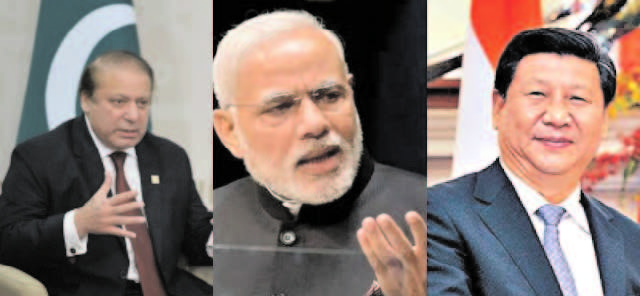
BEIJING (TIP): The World Bank and the International Monetary Fund are urging China to focus on controlling risks from rapidly rising debt due to its reliance on credit-fuelled growth. The comments add to warnings by private sector analysts that China’s run-up in debt, especially since the 2008 global crisis, could lead to financial problems and disrupt economic growth that already is slowing.
In a report, the World Bank said Beijing should pay close attention to rising credit, especially in its largely unregulated informal lending market, and reduce debts owed by local governments. “These policy measures will improve the quality of China’s growth, making it more balanced, inclusive and sustainable,” said Karlis Smits, the report’s chief author, in a statement.
That came after an IMF official said Thursday that financial vulnerabilities have risen to a point where “containing them should be a priority.” Rising debts owed by local governments and uncertainty about informal lending have fuelled concerns China’s economic slowdown might cause a rise in defaults and hurt its financial system. Chinese regulators have taken steps to cool credit growth but still are allowing a relatively fast expansion to support economic growth that slowed to 7.4 percent in the three months ending in March.
By the country’s broadest measure, total outstanding debt rose from the equivalent of 124 percent of gross domestic product in 2007 to more than 200 percent in 2013, according to the World Bank. Corporate debt, at the equivalent of 125 percent of GDP, is “among the highest in Asia,” the World Bank said in a regular report on China’s economy. Growth could be hurt by an abrupt change in local government debt or the price or availability of credit for industry, the bank said.
A portion of China’s total debt was taken on as part of its multibilliondollar stimulus in response to the 2008 crisis. The government boosted spending on building highways and other public works and state-owned banks were ordered to lend more. Reforms to reduce financial risks might slow growth but the impact could be dampened by changes to open Chinese industries to more competition, the World Bank said.
China’s economic growth should decline gradually, falling from last year’s 7.7 percent to 7.6 percent this year and 7.5 percent in 2015, the bank said. The IMF’s first deputy managing director, David Lipton, said Beijing should avoid adding to debt by launching more stimulus unless growth drops well below this year’s official target of 7.5 percent.
Lipton said Beijing still has room to prevent an abrupt slowdown and needs to focus on reducing financial risk. “We welcome the efforts that have been made,” he told reporters after meeting Chinese officials. “Nonetheless, continuing reliance on credit-fuelled growth means that risks are still rising.”





Be the first to comment